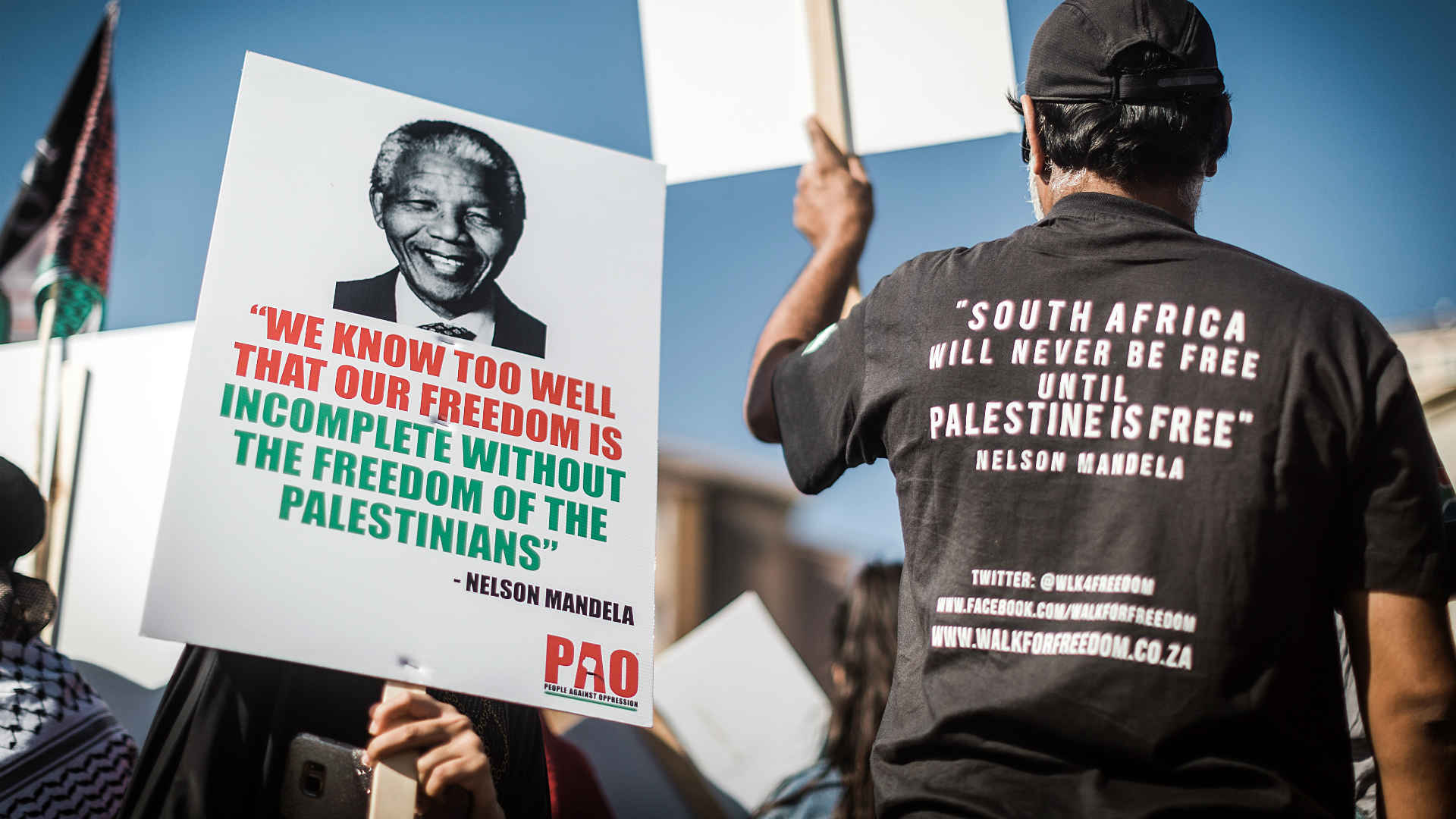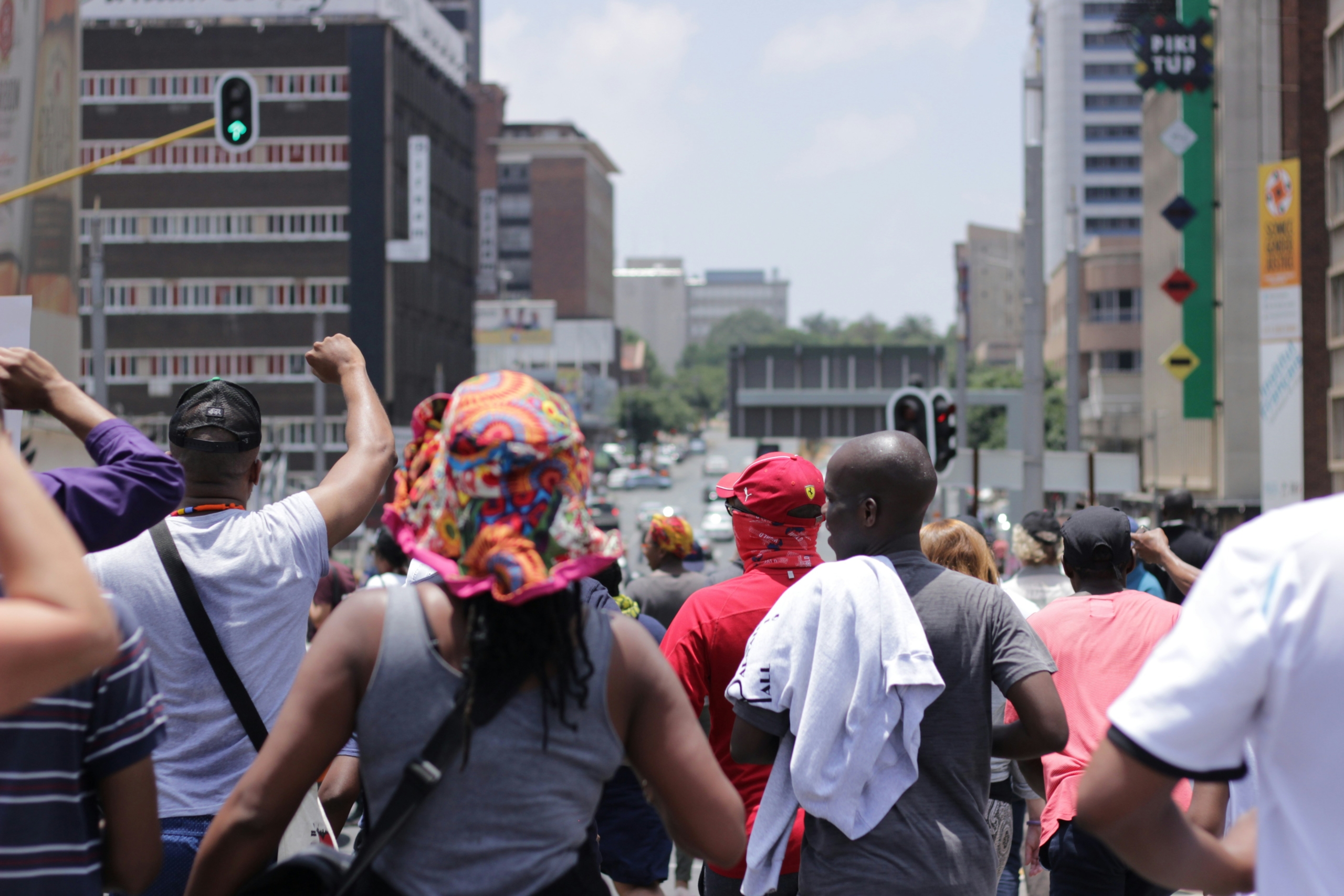We are excited to announce that Brink is now part of Africa Practice. Learn more
Israel-Palestine conflict: The view from Africa

African responses to Hamas militants’ attack on southern Israel on 7 October have been a mixed bag. Kenya, Ghana, the Democratic Republic of Congo (DRC) and Togo came out strongly in support of Israel; while traditional Palestinian allies South Africa, Tunisia and Algeria reaffirmed their historical allegiances. Other leading economies, such as Senegal and Nigeria, released more measured statements, calling for restraint on both sides. Despite these clear divisions across the continental bloc, African countries have so far been near-unanimous in their call for peace talks and the de-escalation of violence.
The African position
Africa does not have a unified stance on the Israel-Palestine conflict, although overall public and government sentiment has traditionally favoured the Palestinians – a reflection of Africa’s history of colonial occupation and popular resistance.
Tensions over this issue have previously spilled over into the African Union (AU). Israel was controversially granted observer status by the AU Commission Chief in 2021 – despite strong opposition by several AU member states. But in February 2023, opponents struck back, removing Sharon Bar-Li, Israel’s senior delegate, from an AU gathering in Addis Ababa, Ethiopia. While Israel blamed the “hatred” of “extremist states” South Africa and Algeria for the expulsion, the AU claimed the invite had been issued to Israel’s ambassador to Ethiopia and the AU, Aleli Admasu, and was not transferable.
Despite this incident, Israel maintains diplomatic relations with 46 African states, and has been making concerted overtures to build influence on the continent, as it seeks to counter Iran’s renewed engagement with Africa. This approach has paid dividends: government sentiment towards Israel has shifted in several African countries in recent years, on account of strengthened diplomatic and trade ties with Israel.
Indeed, Israel has become an attractive partner on account of its advanced defence industry and high-tech intelligence capabilities. This focus on security cooperation has been a key driver of Israel’s overtures to West Africa in particular: Israeli Prime Minister Benjamin Netanyahu became the first ever non-African head of state to address the ECOWAS summit in June 2017. Since then, the Sahelian instability has provided an entry point for Israel to position itself as a key partner in military and intelligence cooperation. The weakening of traditional Western partners such as France had promised to create a vacuum for Israeli defence and intelligence firms to exploit, although progress had been incremental, and the resurgence of conflict in Gaza will complicate Israeli efforts to engage Muslim-majority states across the Sahel.
The economic fallout
With the continent still reeling from higher commodity prices resulting from the outbreak of the Russia-Ukraine conflict in 2022, the situation in the Middle East risks exacerbating global macroeconomic instability. News of the renewed Israel-Palestine conflict sent shockwaves through global markets. Crude oil prices jumped by 5%, reaching USD 89 per barrel amidst concern of a tightening supply, before softening. The spectre of high oil prices will have a detrimental knock-on effect on African economies, with many already struggling to cover their fuel import bills in the wake of currency depreciation and depleted forex reserves.
Africa remains heavily dependent on imported petroleum products on account of insufficient domestic refining capacity – even in major crude producers. The bifurcation of the global market as a result of sanctions on Russian oil producers and traders has driven up costs, hurting fuel importers on the continent. Meanwhile, oil producers such as Angola and Nigeria have endeavoured to cut unaffordable fuel subsidies to balance their books, triggering cost-of-living protests. The prospect of a sustained increase in prices as a result of an escalation of conflict in the Middle East would force African governments to reconsider their plans.
The BRICS equation
Further complicating Africa’s stance is the accession of Ethiopia and Egypt to BRICS in August. The last BRICS summit concluded with a declaration calling for direct negotiations between Israel and Palestine based on international law and the Arab Peace Initiative in pursuit of a two-state solution that would result in the establishment of a sovereign, independent Palestine.
Israel has strong ties with individual BRICS members, including Russia, China and India. While these members have expressed varying degrees of support for Palestine, they have not allowed this sentiment in the past to interfere with their strategic and economic ties with Israel, and are unlikely to take strong diplomatic action against Israel that would jeopardise these links.
The outbreak of conflict represents a key test for the effectiveness of the expanded BRICS bloc. Fingers have been pointed at Iran as a historical enemy of Israel, putting it at odds with Egypt, which has acted as an intermediary, having reportedly warned Israel of the growing risk of an attack in recent weeks. The conflict may be an unwelcome development for financial hub UAE, which benefits from regional stability. However, rising oil prices promise to boost Emirati coffers along with those of leading crude producer Saudi Arabia, which was on the cusp of normalising relations with Israel.
Remaining African members South Africa and Ethiopia risk getting caught up in these divergent stances, which may complicate the route to any decisive action. South Africa’s post-apartheid government remains a strong Palestine ally, despite its population having diverse ties to Israel. By contrast, Ethiopia will have to balance diplomatic concerns – including a 160,000-strong community of Ethiopian-Israelis – with expectations that it will follow the UAE. The Emirates have become an increasingly important bilateral partner since Prime Minister Abiy Ahmed came to power in 2018, with the two governments significantly strengthening ties, signing 17 cooperation agreements this year alone. Like Egypt, Ethiopia may find itself expected to act as an intermediary, brokering relations between competing powers, both at the AU and BRICS.
About the author
Hannah Atkins is a Consultant at Africa Practice. She works with development clients across Africa, with a particular focus on the Southern Africa region. She can be contacted at [email protected].
Proud to be BCorp. We are part of the global movement for an inclusive, equitable, and regenerative economic system. Learn more


